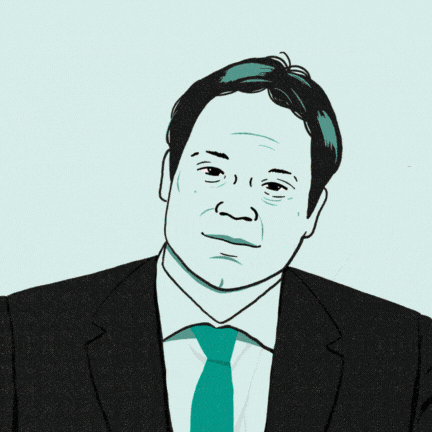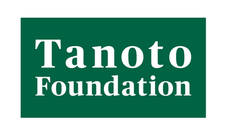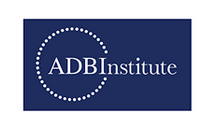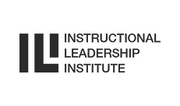20



24
Annual
Report

For GSL, 2024 and early 2025 marked a period of growth and deep lessons in school leadership.
With growing evidence and global conversations around the importance of school leadership, we believe that school leaders are at the heart of education change. And we are grateful to be doing this work alongside a growing, global network of partners and supporters.

For GSL, 2024 and early 2025 marked a period of growth and deep lessons in school leadership.
With growing evidence and global conversations around the importance of school leadership, we believe that school leaders are at the heart of education change. And we are grateful to be doing this work alongside a growing, global network of partners and supporters.
A note from our CEO
Dear friends and partners, What a year 2024 has been for Global School Leaders! To begin with, it was a year of leadership transition. In the end of September, our founder Azad stepped down as CEO, and with deep gratitude and respect, I stepped into this role to carry forward the legacy that he and Sameer have built. Since then, I’ve joined our team and partners in charting the path ahead—building a new long-term strategic plan to guide our next phase. This was also a year of growing recognition for our cause. UNESCO’s GEM Report named school leadership as a key lever for educational change — an important step in elevating our shared mission. At GSL, we expanded our partnerships across several countries, especially in Latin America and the Caribbean. And our research team strengthened the global evidence base on school leadership—publishing new studies, presenting at key international conferences, and expanding the PULS survey to nearly 6,000 school leaders across 18 countries. I hope this annual report gives you a sense of how energizing and meaningful this year has been for us. As I stepped into the CEO role, I was inspired by GSL’s track record and the deep trust it has built with partners across the Global South. Over the past eight years, we’ve worked alongside an extraordinary network of organizations to support effective professional development for school leaders. That work remains at our core. Looking ahead, we also recognize that this is not enough. We must help build the conditions that allow (or prevent) them to thrive. How are school leaders recruited? Is there a shared vision for what their role entails? Who supports them at the district or state level? GSL is embracing these systemic questions — and stepping into a more catalytic role to help address them. We aim to mobilize coalitions and continue working alongside country partners to inform policies and shift the conditions under which school leaders lead. We enter this next chapter with humility—knowing we’re still learning—and with a clear sense that this is complex work requiring the collective effort of many. But we are guided by a simple conviction: school leadership is one of the most powerful levers for change in education, and any transformation we hope to see in schools begins with those who lead them. We are thrilled to keep working with all of our partners to support that transformation! With gratitude, Camila Pereira CEO, Global School Leaders

Highlights from 2024

Launch of the LAC Hub
We were excited to focus expansion efforts in Latin America. The main focus of this work has been building our Latin America and the Caribbean Hub for School Leadership. You can read more about the Hub and this work later in the report.

PULS 2024
Global School Leaders' fifth annual school leader survey, Promoting Understanding of Leadership in Schools (PULS), features insights from 6000 school leaders from 18 countries, and highlights school leaders' experiences with technology.

UNESCO GEM Report
at SL Matters Summit
We were thrilled that the 2024 GEM Report spotlighted school leadership, perfectly aligning with our mission. It inspired our first School Leadership Matters Summit, bringing together 1,000+ participants and 36 speakers from 120 countries.
Building Partnerships
To Strengthen
School Leadership Ecosystems

School Leadership Hub | Latin American and Caribbean (LAC)
In 2024, we co-created the Latin America & the Caribbean Hub (LAC Hub) with Centro Lemann, and 40+ partners from Argentina, Colombia, Mexico, and Peru.

The LAC Hub connects organizations across the region to strengthen school leadership and drive locally-rooted solutions that improve student learning.
Co-Creation in 2024
In 2024, we partnered with Centro Lemann to co-create a regional school leadership hub in Latin America.
More than 25 organizations across 15 countries joined the process
highlighting the strong regional need for collaboration in educational leadership.

Why a Regional Hub?
The Latin America and the Caribbean Hub (LAC Hub) strengthens national initiatives and fosters cross-border solutions to shared educational challenges. It brings together local leaders to build contextually relevant, research-driven approaches to school leadership.
Four Phases of Development
Build a network of LAC organizations working on school leadership
Map the landscape through research and investigation
Co-design the Hub with regional insights
Deliver a strategic proposal for implementation
What the Hub Offers
Cross-country collaboration for school leaders
Proven leadership practices, shared and scaled
Locally adapted global best practices
Greater impact for existing programs
Leadership for Learning | Ghana
In July 2024, we concluded the Grow Your School Program, a training program for school leadership teams from low-fee private schools in Ghana who currently lack instructional leadership support.
Taking our lessons from that program, we launched another phase of work in Ghana, Leadership for Learning. This program aims to improve teaching and learning outcomes by strengthening embedded instructional leadership support for school leaders in various contexts across Ghana. A diverse group of stakeholders, including policy-makers, teacher unions, and school leaders, will guide the program design and help to bridge the policy-practice gap. This project will continue until mid-2027.

aeioTU | Colombia
In 2024, we launched our first partnership in Colombia with aeioTU, marking an exciting expansion of our work into early childhood education. Specifically for early childhood educators, we focused on co-creating a culture of high expectations grounded in strong, supportive relationships and a shared commitment to excellence in teaching and learning. The project aimed to equip these leaders with practical strategies to build and sustain this culture within their communities.
aeioTU first implemented our resources through an in-person program with local leaders and later adapted the content into a virtual format. The result proved to be a promising milestone.
GSL Partner Gathering: Sao Paulo, Brazil
In early 2025, we convened partners from 12 countries for our second in-person GSL Partner Gathering in São Paulo, Brazil, generously hosted with the support of our partner, Centro Lemann.
Over the course of the gathering, we had the privilege of learning alongside one another and hearing directly from school leaders, policymakers, and changemakers driving educational progress in Brazil.
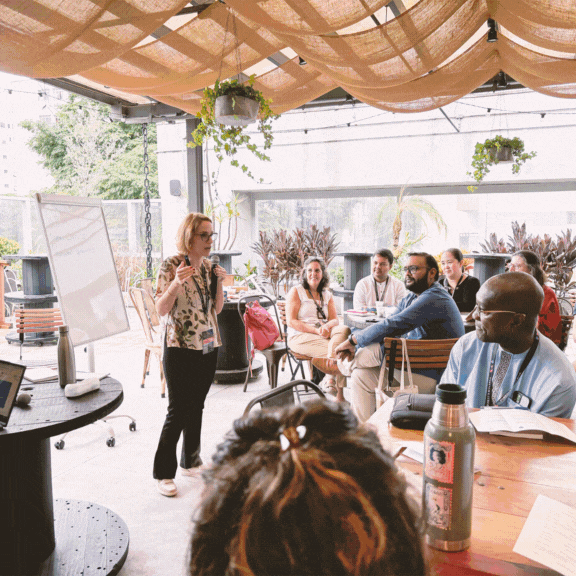
Together, we explored
three key themes
We left São Paulo energized by our partners' shared commitment to school leadership. As we look ahead, we remain dedicated to working together to build policies and systems that empower school leaders and improve outcomes for all learners.
How education systems can serve as enablers for school leadership.
The critical role of political will in driving lasting change.
The power of collective action in shaping strong policies.
As we look back at our time together, here are big reflections that surfaced
Education Systems as Enablers for School Leaders
School visits revealed how systemic support and school autonomy can coexist—empowering leaders to build strong school cultures focused on instruction and social-emotional learning while receiving structured guidance and ongoing professional development.
Collective Action for Strong Policies
In Brazil, we learned school leaders often juggle multiple roles, limiting their focus on instruction.
We explored how national policies and training can better support their transition from teaching to leadership, and connected with organizations bridging the gap between policy and practice through collaborative, innovative models.
The Role of Political Will
Examples like Sobral demonstrated how political commitment—through strategic policies, merit-based selection, and continuous training—can elevate school leadership and drive lasting improvement.
Inspired by our partners’ dedication, we remain committed to working together to build systems and policies that empower school leaders and improve learning for all students.
"The type of challenges we face are so complex that we have to create a network of activists, people from the government and non-governmental organizations to move policies forward."
Anna Penido,
Executive Director, Centro Lemann, Brazil
Building an Evidence-Base
To support School Leaders

Promoting Understanding of Leadership in Schools (PULS) Survey 2024
As technology’s role in education grows, it’s essential to include school leaders’ voices in these conversations. This year's PULS Survey focused on their experiences with technology across the Global South, hearing from nearly 6,000 school leaders across 18 countries.
Here’s what we found
School leaders report disparities in access to reliable internet and electricity and training related to technology, with nearly 70% reporting a lack of sufficient devices for students at school.
Despite challenges in access, 90% of the school leaders are optimistic about technology’s potential to support learning.
Available technology training to school leaders often centers on basic classroom applications, leading school leaders to undervalue its potential to help them in their roles.
This report sheds light on what’s needed to better support school leaders in integrating technology effectively in their schools.
.png)
PULS 2024 Spotlight Stories
Enseña por Argentina
Enseña por Argentina participated in our annual PULS Survey for the first time in 2024. Given the high response rate from school leaders — 2,900 leaders from across Argentina — they were able to use the data to gain insights into school leader experiences in various regions of the country. Enseña por Argentina and the Ministry of Education in specific provinces engaged in conversations to share and interpret the findings, with the Ministry taking this new knowledge and refining its training programs for school leaders.
Fundación Chile
The PULS Survey has also served as a useful strategy for many partners to form alliances with local governments. Fundación Chile, for example, brought together local governments and other system stakeholders to review the country's PULS data. By sharing the data with key decision makers within the system, they were able to dive deeper into the findings and connect them with other relevant research.
PULS 2024 Media Coverage
Research Publications and Presentations
Presenting our research at key academic and research symposiums spotlights the urgent need for more evidence on effective school leadership in the Global South. It helps bridge critical knowledge gaps, informs policy, and ensures that leadership practices are grounded in diverse contexts and realities where they are needed most.
Evidence Review 2024: A Review of Research on the Role of School Leaders in Improving Student Learning Outcomes | Digital
This comprehensive review of 70+ studies dives into the key role of school leaders in enhancing teaching practices and boosting student learning outcomes in the Global South. In this systematic review, we sought to understand the extent to which improving the management skills of school leaders might impact student outcomes. We examined this relationship by analyzing the impact of interventions targeting school leaders’ management practices on student learning. It also shines a light on the enabling conditions school leaders need to succeed in their role.
What Works Hub for Global Education Conference | Oxford, UK
This conference gave us an opportunity to summarize and present learnings from across three studies focused on the role of school principals in improving foundational numeracy.
Two major learnings emerged across all studies
Differentiated programs were most effective in schools where principals were trained, understood the intervention's purpose, and actively supported its implementation
Principals played a crucial role in logistical and managerial tasks, such as scheduling, monitoring, and supporting teachers.
Study Summaries
Study I
Telangana, India
Principals who were enthusiastic, aligned with the program's goals, and committed to sustaining the intervention had better student outcomes. However, the study did not isolate the impact of principal training on learning outcomes.
Study II
Karawang, Indonesia
Training principals improved program fidelity, with principals assisting in scheduling, monitoring, and even teaching. Their involvement marked a shift from administrative roles to instructional leadership.
Study III
Subang and Bekasi, Indonesia
Principals trained alongside teachers demonstrated improved instructional leadership, helping teachers implement differentiated learning strategies effectively. Additional training in management and growth mindset further enhanced their support.
School leaders play a key role in expanding and maintaining focused teaching interventions. Providing them with training in both administrative and instructional leadership is essential to effectively tackle learning deficiencies in low- and middle-income countries. By empowering school leaders, we can significantly improve how programs are adopted, carried out, and ultimately, how students perform.
International Congress for School Effectiveness and Improvement (ICSEI) Conference 2025 | Australia
At ICSEI 2025, we were grateful for the opportunity to present our cumulative work on Gender as well as a summary of our work in India and Ghana. We presented our learnings in two sessions:
Gender Equity and School Leadership: Insights from the Global South
Drawing on two years of research In India, including an evidence review and a Ghana study with UNICEF Innocenti, we explored the challenges women face in leadership, especially in rural areas. Despite these, female headteachers report higher job satisfaction and student engagement. Early findings from the Gender Equitable School Program, our study with India partner Alokit, also showed female leaders to be more likely to actively participate in training programs and implement equitable practices within their schools.
Empowering School Leaders in Ghana
We shared learnings from our study on public and low-fee private schools, emphasizing the need for contextualized support. Public school leaders navigate bureaucracy; private school leaders face financial constraints. Sustained, tailored interventions are key to strengthening school leadership across contexts.
Comparative and International Education Society (CIES) Conference 2025 | USA
Topic: Leveraging school principals to support teachers in differentiated learning
We presented preliminary findings from our research with Inspirasi in Indonesia, focused on a teacher-led differentiated instruction program aimed at improving students' foundational numeracy. In this randomized controlled trial (RCT), teachers, and in some schools, school leaders, received short trainings to implement differentiated instruction strategies. The program used a Digital Learning Ecosystem (EkoPeD) designed to create an ongoing learning environment and enable real-time data collection. We shared four key takeaways: (1) Light-touch interventions may be insufficient in low-resource contexts where learning levels are low; (2) Training should strengthen teachers’ core skills in foundational numeracy, not just instructional techniques; (3) Schools with regular monitoring showed more progress, underscoring the need for stronger monitoring; and (4) Overlapping government reforms made it hard for schools to focus on a single program.
Coming Up in 2025 | Key Research Findings
Gender Equitable Schools Program
The Gender Equitable Schools Program (GESP) is designed to help school leaders establish gender-equitable learning environments by implementing interventions to improve students’ attendance, participation, and sense of belonging. The program was implemented in 160 schools in Rangareddy, Telangana, India, in partnership with Alokit and was funded by Echidna Giving and the Vitol Foundation.
This program has concluded, and the final findings will be published in 2025.
Understanding the Impact of School Leader Training and Coaching on Student Outcomes
In partnership with Alokit, we have carried out a randomized controlled trial (RCT) in Telangana, India, focused on better understanding the impact of coaching and school leadership training on student outcomes. This three-year program was implemented in Telangana Tribal Welfare and Social Welfare schools.
J-PAL South Asia is supporting this project and this work is funded by Fonds d'Innovation pour le Développement (FID). The final results of this study will be published in 2025.
Understanding the Impact of School Leader Training on Teacher Training for Differentiated Learning
In partnership with Inspirasi, we have carried out a research study focused on differentiated learning on foundational numeracy. The study examines the impact of additional support from trained school leaders in supporting teachers in the implementation of this type of instruction. The final results of this study will be published in 2025.
A funding coalition whose members are the Asian Development Bank, Asian Development Bank Institute, UBS Optimus Foundation, Quantedge Advancement Initiative, and Octava Foundation supports this project.
"Technology can truly be a great asset. It can streamline processes and data interpretation which can support better decision-making to allow school leaders to prioritize pedagogy.
Elisa Ibieta,
Part of the Subsecretariat of Early Childhood and Professional Education of Chile's Division of Educational Policies.
Driving Systemic Change
To position school leadership as a critical lever for education transformation

UNESCO Teacher Task Force: School Leadership Network
We deeply believe that school leaders are critical stakeholders in the work of systems change. And so, in 2024, the UNESCO TTF School Leadership Network entered its fourth year with over 1000 registered school leaders from over 100 countries. With the aim to bridge policy with practice, amplify school leader voices in key conversations, and foster a community-led network, the Network had an exciting year!
Key Highlights from 2024
In 2024 the TTF School Leadership Network, co-convened by GSL and the Varkey Foundation, focused on unpacking the 2024 Global Teacher Shortages Report. With the strong belief that school leaders play a critical role in addressing the global crisis of teacher shortages, we met with experts, shared promising practices, and even virtually visited schools across the globe to deepen our understanding of this problem. Through deep discussions, problem-solving, and sharing promising practices, here are some of the lessons the school leaders highlighted:
Feedback versus Coaching
School leaders play a crucial role in retaining talent by shifting from one-off feedback to ongoing, supportive coaching. Coaching helps teachers grow professionally, builds trust, and fosters a sense of investment, making them more likely to stay despite the pressures of understaffed environments.
Strengthening School Culture
A strong, positive school culture can help mitigate the impact of teacher shortages by creating a supportive environment where teachers feel valued, connected, and motivated. School leaders can cultivate this culture through clear communication, shared values, and inclusive leadership, making the school a place where teachers want to remain and thrive
Establishing Symbols of Celebration and Recognition
Celebrating achievements—big and small—can go a long way in boosting morale and teacher retention during staffing challenges. School leaders who establish regular, visible recognition of teachers’ efforts create a sense of appreciation and pride that helps sustain motivation and commitment through difficult periods.
School Leadership Matters Summit and 2024 UNESCO GEM Report Launch
In recognition of the critical role school leaders play, GSL, together with UNESCO GEM as co-convenors, hosted a three-day virtual global convening in November 2024 that brought together practitioners, policymakers, academicians, non-governmental organizations (NGOs), researchers, and funders to discuss and explore innovative approaches and solutions to the pressing issues related to school leadership. The Summit sought to offer a forum for a diverse group of stakeholders to unpack the 2024 GEM Report on Education Leadership and to bring together thoughts, aspirations, and questions to envision a roadmap for sustainable school leadership in the Global South.
SheLeads Project | Supporting Women School Leaders
Despite women predominating as primary school teachers in the Global South, they hold only 26% of school leadership positions (compared to 53% in high-income countries). A disparity driven by social norms and systemic barriers persists despite evidence that female leaders create better educational environments and improve student outcomes.
To help support women school leaders, we developed the SheLeads project, an 11-month virtual program for women school leaders designed to offer professional development and build a supportive community.
The project objectives are to:
Support Professional Development: Focus on challenges women face due to their gender, build key skills, and explore school-specific projects to apply learned skills.
Empower Women Leaders through Connection and Peer Learning: Establish regional groups for peer learning and support of school projects.
Advocate for Gender Equity and Empower Political Expertise: Create a platform to advocate for gender equity in educational leadership and amplify the voices of women leaders.
.png)
We recruited the first cohort at the end of 2024 and the cohort launched in January of 2025.
In the Principal’s Office, Season 3
In 2024, we continued creating episodes of In The Principal’s Office - a podcast series aimed at offering school leaders a platform to lead the conversation on leadership with influential leaders. Season 3 examined how gendered mindsets influence various aspects of school life, including challenges, successes, and student progress, and what needs to change to create a more equitable schooling experience. You dont want to miss these conversations!
The season launched in March of 2025 and includes conversations with school leaders, Noel Lusega from Kenya and Vandete Lima from Brazil, with guests:



Isela Costantini
Former CEO of Aerolíneas Argentinas
Femi Oke
Well-known television presenter and journalist
Poorna Jagannathan
Critically acclaimed actor and producer
"This School Leadership Matters Summit is a clear moment to celebrate and support school leaders in different aspects, and to reflect on the concrete conditions they need to thrive."
Stefania Giannini
Assistant Director-General for Education, UNESCO
Global Events
Explore GSL’s journey across the Global South—advancing the conversation on transforming education, with school leadership as a powerful driver of change.
Click on the pins to explore .
COLOMBIA
Educational Leadership for Social Transformation: Universidad de Los Andes
September 2024
Gender Equity in School Leadership
Our Senior Director of Growth, Magdalena Lemos, presented GSL’s work on advancing gender equity in school leadership. She then joined a panel conversation with key figures from Colombia’s education and public policy space to explore how this work on gender equity in school leadership connects with the current challenges facing the country’s education landscape.
CHILE
International Education Summit of the Catholic University of Chile
January 2025
Summit Internacional de Educación de la Universidad Católica de Chile) (virtual)
At the Summit, our Senior Director of Growth, Magdalena Lemos, led a session outlining GSL’s work with RILE on exploring the landscape of school leadership across Latin America. Our Director of Research, Gautam Anand, also shared insights from our work in Indonesia on the role of school leaders in driving improvements in foundational numeracy.
URUGUAY
Teach for All: Latido Latino
June 2024
Gender Equity in School Leadership
At Latido Latino, Chief of Growth, Magdalena Lemos, shared insights from GSL’s Evidence Review on Gender in School Leadership, emphasizing the connection between gender-equitable leadership and improved student learning outcomes and the importance of creating a pipeline of motivated female leaders.
ARGENTINA
GLI Forum LATAM Pro Mujer event
June 2024
Gender Equity in School Leadership
Our Chief of Growth, Magdalena Lemos, presented key findings from our Evidence Review on Gender in School Leadership, underscoring the need to improve the representation of women in school leadership roles and the need to create support systems and policies to enable them to access leadership roles.
MEXICO
Impact Minds: Latimpacto
September 2024
Partnerships in Education
Our Senior Director of Growth, Magdalena Lemos, participated in a panel discussion where she shared insights on the challenges and practices that can help strengthen education systems with lasting impact. She presented GSL’s collaborative and contextualized approach to system strengthening, highlighting the co-creation process of the Latin America and Caribbean School Leadership Hub.






Creating Public Goods
In addition to the direct support we provide partners, we publish our resources as public goods. Here are some ways that organizations are using our resources to support school leaders.
Organization Sustainability
In a year full of transitions, we leaned even more heavily on our culture of care and support to end the year even stronger than we started.
We continued our work with a lean team of 18 members. We gained three new members throughout the year with a retention rate of 84% and a 16% turnover rate.
We welcomed and successfully onboarded our new CEO, Camila Pereira, who joined the team in August of 2024.
We strengthened our board of directors by welcoming Azad Oommen, Co-Founder and former CEO of GSL.
We launched our Intern and Mid-Career Resident Programs. These programs aim to be mutually beneficial, providing needed support to our teams and providing targeted professional learning and networking opportunities for participants.
We enhanced our employee benefits to continue improving equity and support to team members.
In February 2025, we held our fourth annual Team Gathering in Sao Paulo, Brazil.

Looking Ahead: 2025 and Beyond
GSL’s Strategic Vision for Systemic Change
As we chart our path forward, Global School Leaders is committed to strengthening the school leadership field to improve policies and professional learning opportunities for school leaders.
Our strategy is anchored in three pillars:
Support and convene organizations advancing policy change and professional development.
Develop evidence-based content to strengthen school leadership systems.
Amplify and elevate the voices and lived experiences of school leaders to shape impactful solutions.
We are now working more intentionally at the intersection of professional development and policy, recognizing both as critical to driving systemic, scalable change. We will also deepen our focus on three thematic areas - Gender Equity, Foundational Literacy & Numeracy (FLN), Early Childhood Education


Building Regional Leadership Hubs
In addition to our work this past year on the Latin America and the Caribbean Hub (LAC), we are now looking at Africa and Southeast Asia. We are excited to support the creation of School Leadership Hubs in these regions, providing platforms for governments, CSOs, funders, and researchers to align on priorities and co-create policy solutions.
Expanding Policy Initiatives
We are also expanding our systems-level work specifically in Sierra Leone and Guatemala. In Sierra Leone, we will deepen gender-focused work, launch FLN initiatives, and partner with the government on leadership policy. In Guatemala, we are rolling out rural school leader training, conducting a policy diagnostic, and collecting nationally representative leadership data.
To support these efforts, we are launching a School Leadership Policy Unit—a global hub to drive discourse, research, and collaboration on policy change in the Global South




